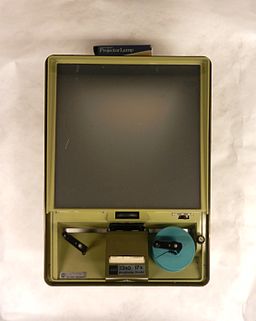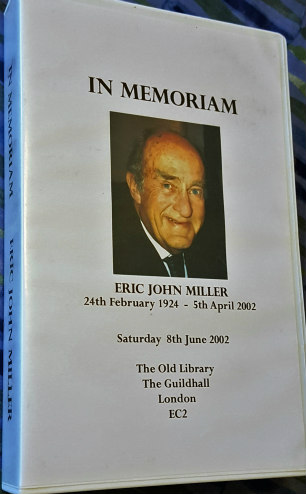Post by Dr Jean Neumann, Professional Partner, Senior Fellow in Scholarly Practice, TIHR
Only after I committed to writing the chapter did I remember that TIHR’s archives would be unavailable to me. I had been invited to contribute to a book about people the editors considered “great change thinkers”. I noted that Kurt Lewin, Eric Trist and Fred Emery were claimed already on an initial list of possibilities. I proposed successfully to lead on a chapter about Eric Miller, with colleague, Antonio Sama, leading on one about A. K. Rice.
In retrospect, my readiness to write the chapter came from a glowing memory of immersion in the TIHR archives while writing a historical article on “Kurt Lewin at The Tavistock Institute” (2005). Particularly, I had benefitted from using the in-house library that contained a microfiche reader. While the library held many TIHR publications, the microfiche box contained (on strips of negative film) microphotographs of papers, reports and correspondence as early as 1946.


When Antonio and I met to explore the commonalities and differences between Miller and Rice, the lack of access to TIHR’s archives hit me. I experienced something akin to grief. I procrastinated for several weeks, unable to glean a way forward. How could I make sense of my extensive experience with Eric Miller as colleague of 16 years, and of Eric Miller as a “great change thinker” with a long and wide career coinciding with some of TIHR’s most respected streams of work? After Antonio suggested obituaries in UK newspapers as resource, I conducted my own meandering searches.
Piecemeal results from the internet jump-started me into gathering materials from my personal archive. Onto the sofa bed next to my office, I laid out books, articles and files by or about or somehow related to Eric. But that all important organising idea eluded me. I was frustrated by missing documents that I now felt were necessary, and worried how to incorporate arenas of Eric’s work about which I was aware but under informed. It became blindingly obvious that I needed to speak directly with Eric’s colleague and wife, Olya Khaleelee, and a couple of other colleagues (e.g. Lionel Stapley).
Through what can be called “oral history”, Olya Khaleelee offered me generous conversation, dialogue and a handful of items from her and Eric’s own library. Embarrassing but essential was her suggestion to look at Eric’s autobiographical preface in From Dependency to Autonomy: Studies in Organization and Change (1993): this book had been on my shelves and I had never read the preface. She loaned her video of Eric’s memorial service; talked me through book collections edited by others in Eric’s name, and importantly handed me something that I recognized from the TIHR archive.
This last item, an Annotated List of Publications: 1946-1975 for TIHR and the Tavistock Clinic, proved pivotal to my approach for writing about Eric Miller as a great change thinker. Once my memories and emotions stirred by watching the three hour In Memorial (2002) video, I was fired up to read Eric’s autobiographic reconstruction of his pre-TIHR days. This allowed me to craft a detailed consideration of his influences and motivations.

Having started the chapter by matching Eric’s dates with activities, it was probably inevitable that I would notice thematic patterns in his research and consultancy projects. That annotated list covered 1959-1975; it was necessary to use Eric’s own list (in From Dependency to Autonomy) for 1950-1993. Lionel Stapley and my own archive helped fill in blanks for 1993- 2002. Thus, I discerned an evolution of Eric’s key “change thinking” contributions by decades and themes, which made it possible to realize insights about his legacies and unfinished business.
Clearly, I relied heavily on my own and others’ oral histories and personal archives. Would the results of this writing process have been the same if TIHR’s microfiche reader and in-house library had been intact? I will never know; indeed, I am still awaiting feedback on the draft chapter. Suffice for now to say that I have a renewed appreciation for an accessible TIHR archive and look forward to its evolving availability!